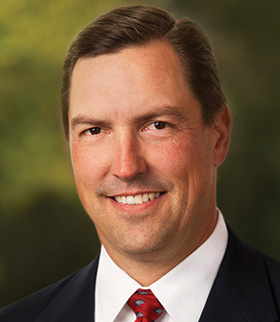Apria joins Byram in OM’s patient direct platform Dan Starck to lead business
By Theresa Flaherty, Managing Editor
Updated 11:03 AM CST, Fri January 14, 2022
RICHMOND, Va., and INDIANAPOLIS – The combination of Byram Healthcare and Apria will create a platform for Owens & Minor to expand in the fast-growing home health care market, says Edward Pesicka, its president and CEO.
Byram’s portfolio is comprised of diabetes, ostomy, incontinence and wound care supplies, while Apria’s is comprised of home respiratory, sleep apnea, negative pressure wound therapy and traditional HME products.
“That creates an opportunity to expand cross-selling, and we’re not limited just to cross selling the brand products Byram and Apria are selling,” said Pesicka. “It’s an opportunity to expand our own proprietary brands and we expect to expand that portfolio.”
Owens & Minor on Jan. 10 announced it plans to buy Apria for $37.50 in cash per share of common stock, representing an equity value of about $1.45 billion. This price per share represents a 26% and 24% premium over Apria’s closing share price on January 7, 2022, and 30-day volume weighted average price, respectively.
 Byram and Apria will operate as part of Owens & Minor’s patient direct platform and will be led by Dan Starck, CEO of Apria. The platform is expected to generate more than $2 billion in annualized revenues and annualized adjusted EBITDA in excess of $300 million, execs say.
Byram and Apria will operate as part of Owens & Minor’s patient direct platform and will be led by Dan Starck, CEO of Apria. The platform is expected to generate more than $2 billion in annualized revenues and annualized adjusted EBITDA in excess of $300 million, execs say.
“The Apria management team has delivered an impressive track record of profitable growth with annual revenue in excess of $1.8 billion, as well as successfully taking Apria public less than a year ago,” said Pesicka.
Byram also has a strong track record of profitable growth, exec say, with annual revenues increasing $450 million since 2017, when it was acquired by Owens & Minor, to about $1 billion today.
Owens & Minor made the acquisition, marrying Byram and Apria, with an eye toward better positioning the companies among payers in particular, execs say.
“Payers are constantly looking to drive efficiencies and consolidate suppliers,” he said. “This also creates opportunity to capitate a broader set of services. With value-based care, it’s the same thing. Lastly, it expands our ability to service insured Americans, by moving us close to 90% (of the insured market).”
Comments